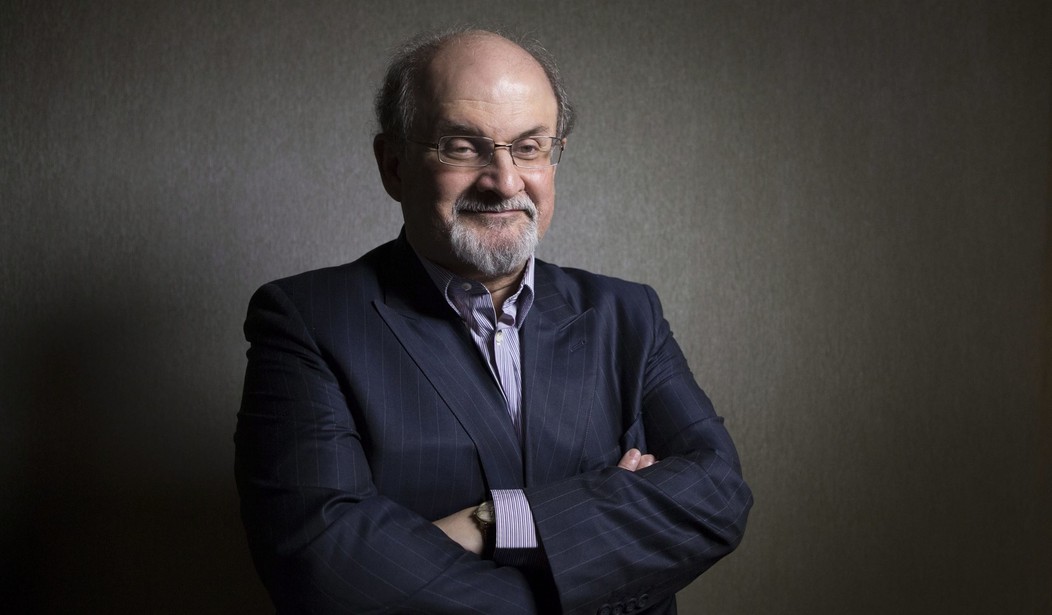After living in secret since 1989, it was in the safety and freedom of the United States that Salman Rushdie was attacked with a knife by a religious zealot. The brutal stabbing shows that extremists’ plans can succeed despite stringent state-imposed restrictions in otherwise free democracies designed to stop such perpetrators. It also underscores the near-universal pressure in the modern era to curb freedom of speech.
Salman Rushdie was the greatest living Indian-born English novelist when the Ayatollah Khomeini offered a $3 million bounty and issued a fatwa calling for Rushdie’s assassination for his novel, The Satanic Verses. Rushdie went into hiding and, even with high security, almost lost his life as he was stabbed in front of a New York audience gathered to hear him speak.
The Rushdie attack illustrates the disregard held by certain societies for the fundamental human right of freedom of speech. It also reveals the cowardice of politicians who want to be politically correct rather than principled on an important human rights issue.
The free world has capitulated to religious extremists on issues of religion and faith, and remains silent when books, films, or art is banned under the guise of hurting someone’s religious or cultural sentiments.
Islamic nations have been largely silent on the fatwa against Rushdie. Instead, extremists in those nations have threatened anyone who speaks against the attack.
The encouraging exception is Muhammed Al Issa, the Secretary General of the Muslim World League based in Mecca, who spoke up quickly and forcefully, condemning the attempt on Salman Rushdie’s life. Al Issa said the violent attack was “a crime that Islam does not accept.” His additional comments to the Arab News on the subject reflect great courage and he deserves the respect and admiration from the free world.
In India where I live, the political classes of the right and left are deadly silent on the issue. A previous Indian government even sided with religious extremists to prevent Rushdie from attending a literary festival here. In a welcome move, finally the present Indian government has condemned the attack on Salman Rushdie and extremist violence.
Recommended
But the advances the world has made on free speech seem to be eroding in the 21st century. In India, religious extremists file cases against journalists for hurting their sentiments, and courts imprison them. In the U.S., the “woke” culture attacks anyone with a different point of view.
The Indian constitution guarantees freedom of speech with reasonable restrictions such as not inflaming communal violence or inciting people to violence. Yet at times many judges do not act appropriately in providing protection for free speech. We saw this in the recent case of the journalist Zubair against whom multiple cases were filed under the covering of hurting religious sentiments. He stayed in judicial custody until the Supreme Court intervened and provided bail.
The question is, should free speech as a fundamental right matter to societies and nations in the present day? The unambiguous answer must be “yes,” given the fact that without free speech human civilization cannot progress without the free flow of ideas.
To be human is to be able to think and speak. Descartes said, “I think therefore I am.” The corollary to this axiom is, “I speak therefore I am human.” As humans, we are diverse in our thoughts and perspectives.
Our tolerance of attacks on free speech over recent decades has left us with increasing violence in open societies. In an interconnected world we cannot ignore an attack on free speech as a problem isolated only in certain pockets of the world.
The fatwa was an Iranian problem and we assumed it would stay there. But it came to America. The silence of major democracies in the face of attacks on free speech, creative work, and journalists needs to be called out.
The allegation against Salman Rushdie was that he had defamed Islam and insulted the Prophet.
Islamic thinkers need to debate among themselves the issue of the criticism of Islam and its founders, as much as there has been freedom in the modern period of Christianity and its founders. The same would apply to criticism of other faiths like Hinduism.
It appears that the fundamentalists of all religions do not eschew criticism and questioning of their beliefs. If this continues, I would think the future of religion itself is weak because sooner or later the human spirit of freeing itself from any shackles or destructive value will reject religion en masse.
In fact people of faith need to listen to the criticisms of thinkers like Dawkins and Hitchens who have written extensively about the shortcomings of religions and how harm has resulted when religious extremism has led to violence.
Where would the world be today if the freedom to think and speak had been snuffed out in centuries past. What kind of societies would we have? Where would science be if it had not questioned deeply held views of the natural world? Where would western civilization be if the Christian value were not adopted that humans are created in the image of God and therefore free to speak and communicate? We must speak, even if it means that some deeply held religious views are challenged.
The attack on Salman Rushdie is not a Muslim problem. It is an attack on each one of us.
Archbishop Joseph D’Souza is an internationally renowned human and civil rights activist. He is the founder of Dignity Freedom Network, an organization that advocates for and delivers humanitarian aid to the marginalized and outcastes of South Asia. He is archbishop of the Anglican Good Shepherd Church of India and serves as the president of the All India Christian Council.

























Join the conversation as a VIP Member